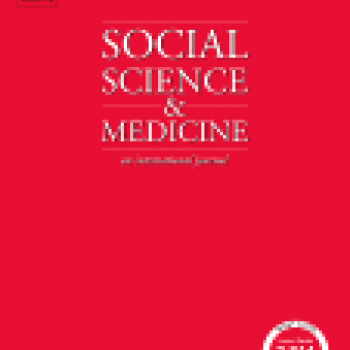Publication Information

Food insecurity, the state of being without reliable access to a sufficient quantity of safe, nutritious food, is a persistent problem in rural Ethiopia. However, little qualitative research has explored how food insecurity affects children over time, from their point of view.
What are the effects of economic ‘shocks’ such as illness, death, loss of livestock, drought and inflation on availability of food, and children's well-being? To what extent do social protection schemes (in this case, the Productive Safety Net Programme) mitigate the long-term effects of food insecurity for children?
The paper uses a life-course approach, drawing on analysis of four rounds of qualitative longitudinal research conducted in 2007, 2008, 2011 and 2014, with eight case study children, as part of Young Lives, an ongoing cohort study. Children's descriptions of the importance of food and a varied diet (dietary diversity) in everyday life were expressed in a range of qualitative methods, including interviews, group discussions and creative methods.
The paper suggests that while the overall picture of food security in Ethiopia has improved in the past decade, for the poorest rural families, food insecurity remains a major factor influencing decisions about a range of matters – children's time allocation, whether to continue in school, whether to migrate for work, and whether they marry.
The paper argues that experiences of food insecurity need to be understood holistically, in relation to other aspects of children's lives, at differing stages of the life-course during childhood.
The paper concludes that nutritional support beyond early childhood needs to be a focus of policy and programming.
Keywords
Food insecurity; Children and young people; Rural Ethiopia; Qualitative longitudinal research
Download “I started working because I was hungry”: The consequences of food insecurity for children's well-being in rural Ethiopia Morrow, Tafere, Chuta, Zharkevich, Social Science & Medicine, Volume 182, June 2017.

Food insecurity, the state of being without reliable access to a sufficient quantity of safe, nutritious food, is a persistent problem in rural Ethiopia. However, little qualitative research has explored how food insecurity affects children over time, from their point of view.
What are the effects of economic ‘shocks’ such as illness, death, loss of livestock, drought and inflation on availability of food, and children's well-being? To what extent do social protection schemes (in this case, the Productive Safety Net Programme) mitigate the long-term effects of food insecurity for children?
The paper uses a life-course approach, drawing on analysis of four rounds of qualitative longitudinal research conducted in 2007, 2008, 2011 and 2014, with eight case study children, as part of Young Lives, an ongoing cohort study. Children's descriptions of the importance of food and a varied diet (dietary diversity) in everyday life were expressed in a range of qualitative methods, including interviews, group discussions and creative methods.
The paper suggests that while the overall picture of food security in Ethiopia has improved in the past decade, for the poorest rural families, food insecurity remains a major factor influencing decisions about a range of matters – children's time allocation, whether to continue in school, whether to migrate for work, and whether they marry.
The paper argues that experiences of food insecurity need to be understood holistically, in relation to other aspects of children's lives, at differing stages of the life-course during childhood.
The paper concludes that nutritional support beyond early childhood needs to be a focus of policy and programming.
Keywords
Food insecurity; Children and young people; Rural Ethiopia; Qualitative longitudinal research
Download “I started working because I was hungry”: The consequences of food insecurity for children's well-being in rural Ethiopia Morrow, Tafere, Chuta, Zharkevich, Social Science & Medicine, Volume 182, June 2017.

